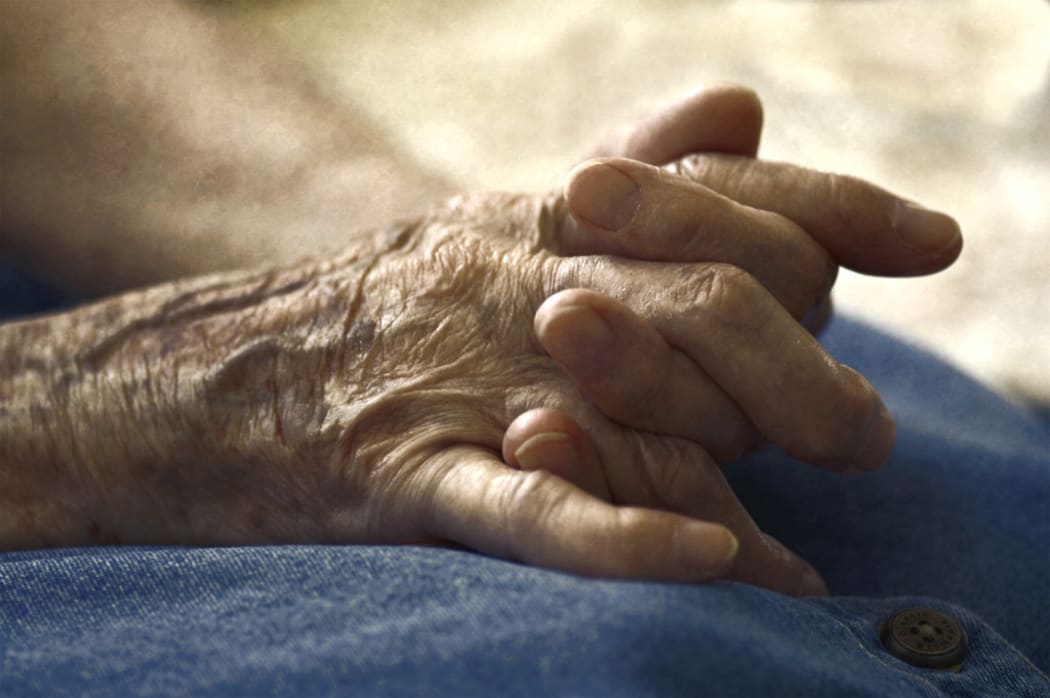We asked two aged care workers about their jobs

Photo: Timothy K Hamilton/Flickr
It’s heavy work - both physically, and emotionally.
When Sarah* first started as an aged care worker, at 18 years old, she didn’t know how to deal with people dying. Steph* had the same issue.
“The best thing about the job is also the worst thing,” the 50-year-old says.
“The best thing is the relationship you build up with your residents. You walk into their room and their face lights up because they’re happy to see you.
“And then they die.”
***
On Tuesday, the Government announced it had committed $2 billion to paying about 55,000 caregivers a fair wage.
The settlement came after care worker Kristine Bartlett successfully argued that if the female-dominated caregiver sector employed mostly men, they would be paid at a higher rate.
From July 1, the predominantly female workforce, which mostly earns minimum wage (currently $15.75 an hour), will receive a pay rise of between 15 and 50 percent.
This means the lowest qualified workers with the least experience, who are currently on minimum wage, will earn about $19 an hour.
The pay rises go to workers in aged and disability residential care, and home and community support services, but will not include caregivers within families.
The payout is being celebrated as a pay equity victory for women, who dominate the care industry.
Former Equal Opportunities Commissioner, Professor Judy McGregor, who worked undercover as a carer for a week in 2012 ahead of publishing a report on discrimination in the industry, told Morning Report she thought news of pay rises was “absolutely fantastic”.
She said women like Bartlett would have worked their whole lives, and be about $500,000 short in terms of lifetime earnings over their careers.
“We need to take the victory now and push ahead for equal pay for women and for pay equity in other sectors … like education support workers, social workers, librarians and others.”
However, the PSA union, expressed concern that the a draft of the Employment (Pay Equity and Equal Pay), Bill which will legislate the payout, "will "slam the door on future claimants".
***
Now 32, Sarah began working at a rest home when she was 18. She was paid $14 an hour, which after three years was increased to $14.50.
She hopes a pay rise will make employees in the sector feel valued and appreciated.
Day-to-day work as a carer can involve helping patients in and out of bed and the shower, feeding and sometimes medicating them, taking walks, doing laundry and helping people use the toilet every few hours (though sometimes more often).
Sarah says the facility she was at would often be short staffed, and because of the low pay, the jobs were not desirable, so there were regular vacancies.
If it came down to it, she wouldn't allow her parents to stay in an aged care facility.
“You do see people that should never be working in the industry - whose attitudes aren’t suited to be looking after the elderly.
“Some people just wouldn’t turn up to work - because where is the incentive? So you end up working almost by yourself. That kind of thing made it exhausting.
“It’s heavy, but it’s a very rewarding job as well. I think the people who do it are definitely not in it for the money.”
Sarah left aged care work after 12 years, as a 30-year-old, because she could barely afford to live.
***
Steph says having someone die is still hard to get used to.
“I try to think that they’re no longer in pain, or dealing with dementia, and that they’re in a better place.”
As an experienced 50-year-old, she’s still paid minimum wage.
“It feels like you're being taken advantage of - because to stay in that job you have to love what you’re doing”.
Some of the people Steph works with have to do two or three jobs just to make ends meet.
“It’s not on, because it affects the quality of care. People are exhausted from working 18 hour days just to pay the rent.
She says tired people lack the tolerance needed to deal with difficult patients.
There are a lot of single mums in the sector, she says, and the hours can be tough with a family to look after.
“I’ve worked with women who’ve left their kids home in the evening - with an older one looking after the younger ones - that’s not an ideal situation.”
Where she currently works there are 35 residents, six carers and a registered nurse - but that’s on a good day. And every day it’s all hands on deck.
“You don’t get time to stop. It’s like a factory for old people. You quickly get a person showered and dressed and then rush on to the next, and the next. The ones that are able to dress themselves probably won’t see a caregiver until 10 o’clock in the morning.
“When you get home you’ve got no energy left. You're tired and stressed and sore. You don’t go home feeling good, there’s no work satisfaction, which I guess contributes to staff turnover.”
Steph says the pay rise was good news, and she hopes it will mean an improvement in quality of care.
But she’s cynical about where the Government is getting the money from.
“What gets given with one hand gets taken away with the other.”
***
So where is the money for the settlement coming from?
The care workers’ payout will cost the Government $2.048 billion over five years.
It will be funded through an increase of $1.856 billion to Vote Health - the Ministry of Health’s budget - and $192 million to ACC. That’s an extra $371m to Vote Health each year.
The settlement also means an estimated $424 million of additional costs will be recovered from ACC levies over 10 years. levies may go up, and they may not.
Similarly, the cost of unsubsidised care may go up.
About 90 percent of the settlement costs were included in the 2016 Half Year Economic and Fiscal Update (or HYEFU - a half-year budget of sorts published by Treasury)
For the 2017/18 financial year, a forecast $704 million will be put aside for unallocated contingencies.
This is money that was budgeted to be spent in 2016 and previous years, but was not.
*Sarah and Steph have both asked not to be identified by their full names.


